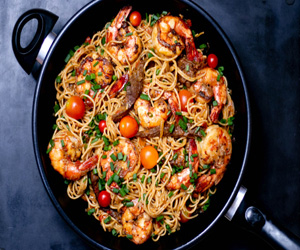


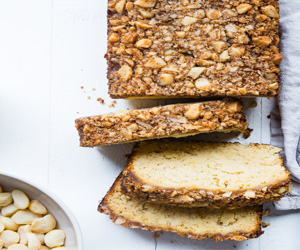
A gluten-free diet has gained significant attention over the past few years, with many people adopting it for various reasons, including celiac disease, non-celiac gluten sensitivity, and personal dietary preferences. While a gluten-free diet can bring about numerous health benefits, it's not without its challenges. In this article, we'll explore some of the common obstacles and how to overcome them when following a gluten-free lifestyle.
1. Limited Food Choices
One of the most notable challenges of a gluten-free diet is the perception of limited food choices. Many staple foods like bread, pasta, and baked goods contain gluten, making it seem like there's not much left to enjoy. However, with the increasing demand for gluten-free products, there's a growing variety of options available. Explore naturally gluten-free foods like fruits, vegetables, lean proteins, and legumes. Additionally, try gluten-free grains like quinoa, rice, and corn to diversify your diet.
2. Cross-Contamination
Cross-contamination is a constant concern for individuals with celiac disease. Even a small amount of gluten can trigger symptoms or damage the small intestine. To mitigate this risk, create a dedicated gluten-free area in your kitchen, use separate utensils and cookware, and be cautious when dining out. Communication is key when eating at restaurants; be sure to inform the staff of your dietary restrictions to prevent cross-contamination.
3. Social And Dining Challenges
Social situations and dining out can pose challenges for those on a gluten-free diet. Friends and family may not fully understand the dietary restrictions, which can make social gatherings awkward. The key is to communicate your dietary needs clearly, offer to bring gluten-free dishes, and seek out restaurants with gluten-free options. Many establishments are now catering to the gluten-free trend, making dining out more accessible.
4. Label Reading And Hidden Gluten
Understanding food labels and identifying hidden sources of gluten is vital. Gluten can hide in unexpected places, such as sauces, dressings, and seasonings. Familiarize yourself with label reading and look for certified gluten-free products. Also, consider downloading gluten-free apps or using online resources to verify the safety of specific brands and products.
5. Expense
Gluten-free products can be more expensive than their gluten-containing counterparts. The demand for gluten-free alternatives often results in a higher price point. To manage this challenge, buy gluten-free products in bulk when possible, explore farmers' markets and discount stores, and focus on naturally gluten-free foods, which tend to be more budget-friendly.
6. Nutritional Concerns
A gluten-free diet may lead to potential nutritional concerns, as some gluten-free products can lack essential nutrients like fiber, iron, and B vitamins. To overcome this challenge, prioritize whole, nutrient-rich foods. Incorporate gluten-free grains and flours that offer a good balance of essential nutrients. Consulting with a registered dietitian can help you create a well-rounded, gluten-free meal plan that addresses any potential nutritional gaps.
A gluten-free diet comes with its share of challenges, but they can be managed with the right strategies and a positive attitude. With increased awareness and the growing availability of gluten-free products, following this dietary choice has become more accessible. By staying informed, practicing safe food preparation, and seeking support and advice from healthcare professionals, individuals can successfully navigate the challenges of a gluten-free lifestyle while reaping its many benefits.





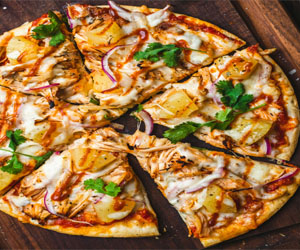
The Joy Of Culinary Creativity
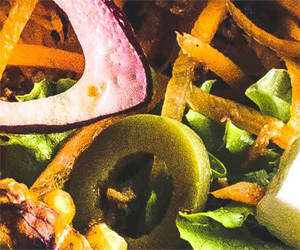 Learning And Growth: Kitchen experiments are an invaluable source of learning and growth in the world of cooking. They offer an opportunity to expand one's culinary skills and knowledge. Whether it's trying a new cooking method, experimenting with unusual ingredients, or attempting a complex recipe, these experiments push cooks to develop new techniques and broaden their culinary repertoire.
Learning And Growth: Kitchen experiments are an invaluable source of learning and growth in the world of cooking. They offer an opportunity to expand one's culinary skills and knowledge. Whether it's trying a new cooking method, experimenting with unusual ingredients, or attempting a complex recipe, these experiments push cooks to develop new techniques and broaden their culinary repertoire.
Culinary Innovation: Some of the most iconic dishes in the culinary world have been born out of kitchen experiments. Creative chefs who dared to experiment with their ingredients and techniques have given us classics like the chocolate lava cake, the Caesar salad, and even the sandwich. Innovation in the kitchen is often a result of daring to explore the unknown.
Embracing Simplicity In A Complex World
 Embracing Minimalism: At its core, "back to basics" promotes minimalism. It encourages people to declutter their lives, both physically and mentally. Minimalism is about focusing on what truly matters and eliminating the excess. It's the realization that more possessions, busyness, or complexity do not necessarily lead to greater happiness or fulfillment.
Embracing Minimalism: At its core, "back to basics" promotes minimalism. It encourages people to declutter their lives, both physically and mentally. Minimalism is about focusing on what truly matters and eliminating the excess. It's the realization that more possessions, busyness, or complexity do not necessarily lead to greater happiness or fulfillment.
Simplicity In Daily Living: In a world of constant distractions and information overload, "back to basics" encourages us to simplify our daily routines. This could mean cultivating habits like mindfulness, time management, and gratitude. It's about savoring the present moment, fostering deep connections, and finding joy in life's simple pleasures.
Health And Well-Being: The "back to basics" approach extends to health and well-being. It advocates for a return to whole, unprocessed foods, regular exercise, and stress reduction techniques. Prioritizing a balanced, natural diet and physical activity can lead to improved physical and mental health, reducing the reliance on pharmaceutical interventions.
Health And Dietary Considerations
 Health Benefits
Health Benefits
For individuals with celiac disease or gluten sensitivity, adopting a gluten-free lifestyle is non-negotiable. Consuming gluten can lead to severe health consequences and discomfort. However, even for those without these conditions, there are potential health benefits to going gluten-free.
Some people report improved digestion, increased energy, and reduced gastrointestinal discomfort when they eliminate gluten from their diets. This could be attributed to the fact that many gluten-containing foods are also highly processed and high in refined carbohydrates. A gluten-free diet can encourage individuals to choose more whole and naturally gluten-free foods like fruits, vegetables, lean proteins, and legumes.
Potential Drawbacks
While the gluten-free lifestyle offers various benefits, it's essential to be mindful of potential drawbacks.
Mastering Efficiency In The Kitchen
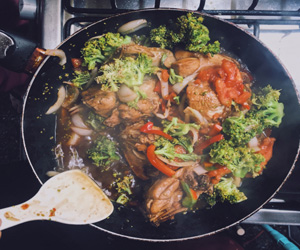 Benefits Of Quick Cooking
Benefits Of Quick Cooking
Here are some compelling reasons to embrace quick cooking:
1. Time Efficiency: The most obvious benefit is that quick cooking saves time. You can have a meal on the table in minutes, making it ideal for busy weeknights or when unexpected guests drop by.
2. Reduced Stress: Traditional cooking can be stressful, especially when time is limited. Quick cooking techniques minimize stress by simplifying the process and eliminating the need for elaborate preparations.
3. Fresh And Healthy: Quick cooking doesn't mean compromising on freshness and nutrition. With the right ingredients and techniques, you can create healthy and flavorful meals without spending hours in the kitchen.
4. Versatility: Quick cooking isn't limited to specific types of dishes. You can apply these techniques to a wide range of cuisines and recipes, from stir-fries and sheet pan dinners to simple salads and pasta dishes.
Sip Your Way To Health And Vitality
 Hydration And Wellness
Hydration And Wellness
Nourishing drinks, such as herbal teas, infused waters, and fresh fruit juices, help keep your body hydrated. Proper hydration is fundamental to overall health, as it supports digestion, detoxification, and cellular function. Staying well-hydrated is often the first step towards feeling energetic and vibrant.
Digestive Support
Many nourishing drinks are designed to promote healthy digestion. For example, a warm cup of herbal tea or a ginger-infused elixir can soothe the stomach and relieve indigestion. Probiotic-rich drinks like kefir and kombucha enhance gut health by introducing beneficial bacteria, which can aid in digestion and boost the immune system.
Antioxidant Power
Antioxidants play a vital role in protecting the body from oxidative stress and preventing cell damage. Nourishing drinks, particularly those made from dark leafy greens, berries, and other antioxidant-rich foods, offer a delightful way to boost your body's defense mechanisms.
Customization And Variety
The versatility of nourishing drinks is another significant advantage. You can personalize your beverages to suit your preferences and dietary needs. Whether you desire a green smoothie packed with spinach, a creamy nut milk for added protein, or a rejuvenating herbal infusion, the possibilities are endless.